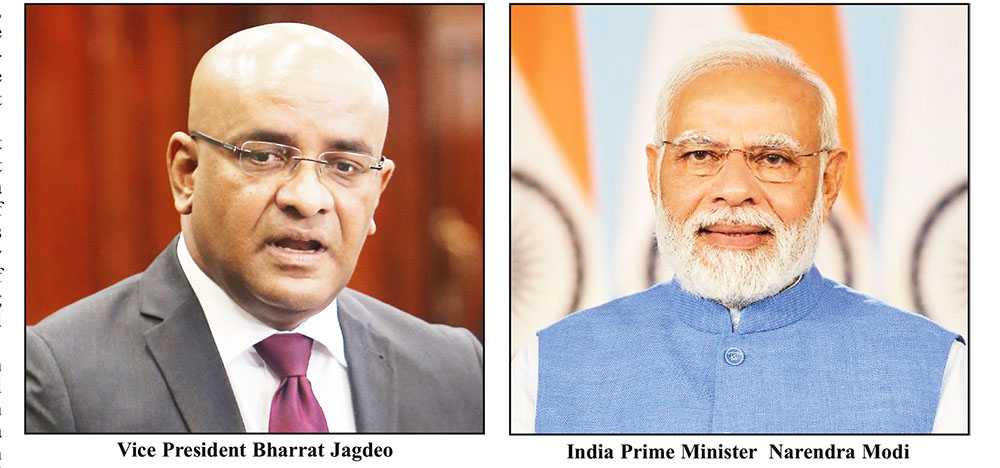Back in April last year it had been announced that India, the world’s third largest consumer of oil, had engaged the Government of Guyana in pursuit of its interest in a long-term deal to acquire oil from Guyana. That news came following the Indian government’s purchase of the first ever shipment of oil sold from offshore recovery here.
India’s expression of interest in an extended agreement for it to become Guyana’s first major long-term market had come in the wake of the wider circumstance of a falling out between New Delhi and the Organization of Petroleum Exporting Countries (OPEC) over the cartel’s decision to further expand production cuts, significantly lifting the price of oil, and sending jitters around many of the world’s major oil-importing countries, including India, a country on the ‘top shelf’ of the world’s major oil consumers.
By August 2021, however, Indian hopes of a deal with Guyana that would at least help put its considerable oil supply ‘jitters’ behind it had been ‘scuttled’ by a decision announced by Vice President Bharrat Jagdeo that Guyana had opted against any long-term oil supply deal with India. “We told them they would have to put in a bid along with all the companies,” is what Jagdeo is reported to have told a section of the local media, adding that the Government of Guyana was hoping that “within a matter of weeks a decision would be made that will settle who sells our oil for the next, maybe, year at least.”
India, it seemed, however, had never really given up on striking an oil deal with Guyana, the importance of protecting its energy security having by now become more urgent in the face of the Russian hostilities in the Ukraine and the impact of this development on oil supplies from that country and, more importantly, prices.
Last month, an official Government of Guyana announcement disclosed that Georgetown was awaiting a proposal from New Delhi, an initial step marking a new attempt to arrive at a government to government agreement that would pay particular attention to Guyana receiving the best prices that could be negotiated for its oil to India.
Significantly, the announcement of the likely green-lighting of the sale of oil to India came, according to a statement issued by India’s Ministry of Petroleum and Natural Gas, following talks between President Irfaan Ali and India’s Energy Minister Hardeep Singh, during the Guyanese President’s recent visit to India. A subsequent state media report indicated that while in India, President Ali had succeeded in securing agreement with the Government there on direct Government to Government cooperation across the entire spectrum of the oil and gas sector including “participation in exploration and production activities in Guyana, technical cooperation in the midstream and downstream sector and capacity building.”
On his return to Guyana from India President Ali was quoted as saying at a media briefing that India had “made it very clear that they have an interest in being one of the purchasers of Guyana’s oil,” adding that the two countries’ technical teams “will work and see what proposals India puts forward.”
The Government of Guyana, of course, is only too well aware that a long-term, price-friendly oil supplies agreement with India can realize significant earnings for the country given India’s insatiable energy demands. India’s demand for oil is expected to continue growing and reach about 6 million barrels per day by 2024, up from 4.4 million barrels per day in 2017, representing an annual growth of 3.9 percent, much higher than the global average of 1.2 percent, according to the International Energy Agency (IEA). This circumstance renders the country vulnerable to any risks that could disrupt its oil supplies, this, notwithstanding the Narendra Modi government’s sought-after transition to clean energy.
It may well be that a point has been reached where a significant long-term deal on oil sales to India may well be just around the proverbial corner. Earlier this week news broke of an impending visit to India by Vice President Jagdeo, widely regarded as the country’s ‘front man’ on oil and gas issues. Vice President Jagdeo’s visit to India, it is believed, will focus primarily on examining the issues involved in finalizing that envisaged long-term deal for oil recovered from Guyana’s offshore Stabroek Block to be sold to India.





